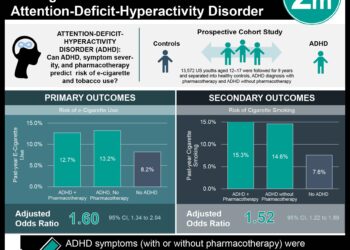Electronic cigarette associated lung injury linked with THC and vitamin E containing products
1. Study findings suggest that use of tetrahydrocannabinol (THC)-containing products and vitamin E acetate to be associated with outbreak of use-associated lung injury in California
Evidence Level: 3 (Average)
Despite e-cigarette, or vaping usage increasing in popularity in North America in the past decade, the contents of the products remain largely unregulated nationwide. With early cases of severe lung injury without evidence of infection reported in August 2019 as being potentially related to vape usage, health concerns for a behavior once thought to be a safer alternative to conventional smoking also began to grow. To better characterize the demographics, clinical characteristics, and associations with vaping, this study examined 160 case reports of suspected e-cigarette, or vaping, product use-associated lung injury (EVALI) that were reported to the California Department of Public Health (CDPH). Specifically, epidemiologic, laboratory, and interview data were used to assess frequency and type of vaping product usage, and its associations with clinical data, level of care, and hospital outcomes. Among 160 EVALI cases, there were 71 (46%) cases requiring ICU admission, 46 (29%) requiring mechanical ventilation, and 4 in-hospital deaths. Of these cases, 71 (83%) cases involved vaping THC containing products, 36 (43%) CBD-containing products, and 39 (47%) nicotine-containing products. Majority of patients (63 [73%]) reported daily vaping usage with 30 (35%) reporting vaping more than 5 times a day. From 24 patients, 87 vaping products were additionally tested, of which 49 (56%) contained THC, and 41 (84%) contained Vitamin E or Vitamin E acetate. Symptoms reported often included cough, shortness of breath, fevers, and chills, with nearly all patients meeting at least 2 systemic inflammatory response syndrome criteria at presentation. Although causality cannot be determined from this investigation, the study suggests a clear association between vaping and acute lung injury, and given the severity of many of these cases reported, cessation of usage continues to be advised.
Click to read the study in JAMA Internal Medicine
Image: PD
©2020 2 Minute Medicine, Inc. All rights reserved. No works may be reproduced without expressed written consent from 2 Minute Medicine, Inc. Inquire about licensing here. No article should be construed as medical advice and is not intended as such by the authors or by 2 Minute Medicine, Inc.






